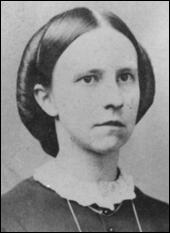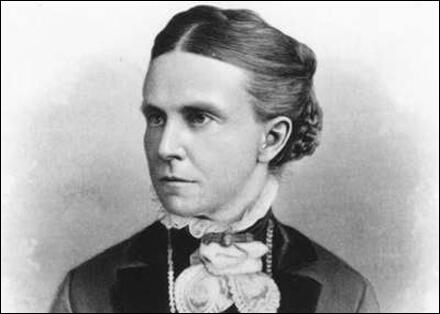Olmpia Brown

Olympia Brown was born in Prarie Ronde, Michigan on 5th January, 1835. One of four children she was educated locally and became a schoolteacher when she was 15 years old.
After being refused entry to the University of Michigan because she was a woman, Brown was accepted by Antioch College. While studying at Antioch she heard a speech made by the anti-slavery campaigner, Francis Gage. Afterwards she reported that: "It was the first time I had heard a woman preach and the sense of victory lifted me up."
Brown graduated from Antioch in 1860 and after much resistance, managed to enter St. Lawrence Seminary. In June 1863, she became the first woman to be ordained as a minister of the church. Over the next few years Brown worked as a pastor in Marshfield, Weymouth, and Bridgeport.
A founder member of the New England Woman's Suffrage Association in 1867 she joined Susan B. Anthony, Elizabeth Cady Stanton, Lucretia Mott and Lucy Stone in Kansas where Negro suffrage and woman suffrage were to be decided by popular vote. However, both ideas were rejected at the polls.
In 1878, Brown, now president of National Woman Suffrage Association in Wisconsin, became the pastor at the Church of the Good Shepherd in Racine. Over the next few years she invited leading campaigners for women's suffrage, such as Julia Ward Howe, Susan B. Anthony and Mary Livermore to speak from the pulpit.

During the First World War Brown joined Alice Paul and Lucy Burns to form the Congressional Union for Women Suffrage (CUWS) and attempted to introduce the militant methods used by the Women's Social and Political Union in Britain. This included organizing huge demonstrations and the daily picketing of the White House. Over the next couple of years the police arrested nearly 500 women for loitering and 168 were jailed for "obstructing traffic".
In June, 1920, Brown, now aged eighty-five, was one of the women who took part in the march on the Republican Convention in Chicago. This was the last of the great suffrage demonstrations as the Nineteenth Amendment was passed two months later. Of the original campaigners, Brown was the only one who lived long enough to witness women being granted the vote.
Olympia Brown died in Baltimore on 23rd October, 1926.

